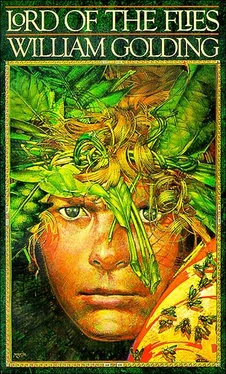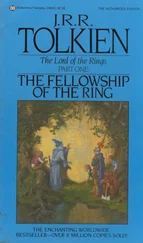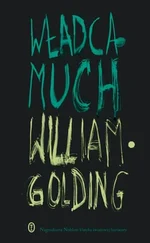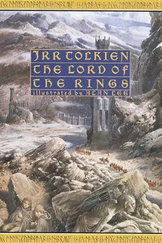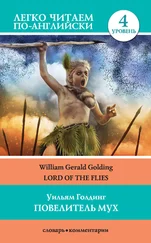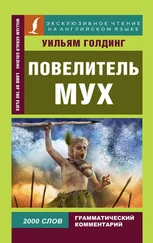William Golding - Lord of the Flies
Здесь есть возможность читать онлайн «William Golding - Lord of the Flies» весь текст электронной книги совершенно бесплатно (целиком полную версию без сокращений). В некоторых случаях можно слушать аудио, скачать через торрент в формате fb2 и присутствует краткое содержание. Год выпуска: 1959, ISBN: 1959, Издательство: Perigee Trade, Жанр: Классическая проза, на английском языке. Описание произведения, (предисловие) а так же отзывы посетителей доступны на портале библиотеки ЛибКат.
- Название:Lord of the Flies
- Автор:
- Издательство:Perigee Trade
- Жанр:
- Год:1959
- ISBN:0399501487
- Рейтинг книги:4.5 / 5. Голосов: 2
-
Избранное:Добавить в избранное
- Отзывы:
-
Ваша оценка:
- 100
- 1
- 2
- 3
- 4
- 5
Lord of the Flies: краткое содержание, описание и аннотация
Предлагаем к чтению аннотацию, описание, краткое содержание или предисловие (зависит от того, что написал сам автор книги «Lord of the Flies»). Если вы не нашли необходимую информацию о книге — напишите в комментариях, мы постараемся отыскать её.
Lord of the Flies — читать онлайн бесплатно полную книгу (весь текст) целиком
Ниже представлен текст книги, разбитый по страницам. Система сохранения места последней прочитанной страницы, позволяет с удобством читать онлайн бесплатно книгу «Lord of the Flies», без необходимости каждый раз заново искать на чём Вы остановились. Поставьте закладку, и сможете в любой момент перейти на страницу, на которой закончили чтение.
Интервал:
Закладка:
Awed by the hideousness of the dripping head (an image of the hunter’s own nature) the apprentice bacchantes suddenly run away, but Simon’s gaze is “held by that ancient, inescapable recognition”—an incarnation of the beast or devil bom again and again out of the human heart. Before he loses consciousness the epileptic visionary “hears” the truth which is inaccessible to the illusion-bound rationalist and the unconscious or irrational man alike: “‘Fancy thinking the Beast was something you could hunt and kill!’ said the head. For a moment or two the forest and all the other dimly appreciated places echoed with the parody of laughter. ‘You knew, didn’t you? I’m part of you? Close, close, close! I’m the reason why it’s no go? Why things are as they are?’”. When Simon recovers from this trauma of revelation he finds on the mountain top that the “beast” is only a man. Like the pig itself, the dead man in the chute is fly-blown, corrupt, an obscene image of the evil that has triumphed in the adult world as well. Tenderly, the boy releases the lines so that the body can descend to earth, but the fallen man does not die. After Simon’s death, when the truth is once more lost, the figure rises, moves over the terrified tribe on the beach, and finally out to sea—a tyrannous ghost (history itself) which haunts and curses every social order.
In his martyrdom Simon meets the fate of all saints. The truth he brings would set us free from the repetitious nightmare of history, but we are, by nature, incapable of receiving that truth. Demented by fears our intelligence cannot control, we are at once “heroic and sick”, ingenious and ingenuous at the same time. Inevitably we gather in tribal union to hunt the molesting “beast,” and always the intolerable frustration of the hunt ends as it must: within the enchanted circle formed by the searchers, the beast materializes in the only form he can possibly assume, the very image of his creator; and once he is visible, projected (once the hunted has become the hunter), the circle closes in an agony of relief. Simon, call him prophet, seer or saint, is blessed and cursed by those intuitions which threaten the ritual of the tribe. In whatever culture the saint appears, he is doomed by his unique insights. There is a vital, if obvious, irony to be observed in the fact that the lost children of Golding’s fable are of Christian heritage, but when they blindly kill their savior they re-enact an ancient tragedy, universal because it has its true source in the defects of the species.
The beast, too, is as old as his maker and has assumed many names, though of course his character must remain quite consistent The particular beast who speaks to Simon is much like his namesake, Beelzebub. A prince of demons of Assyrian or Hebrew descent, but later appropriated by Christians, he is a lord of the flies, an idol for unclean beings. He is what all devils are: an embodiment of the lusts and cruelties which possess his worshipers and of peculiar power among the Philistines, the unenlightened, fearful herd. He shares some kinship with Dionysus, for his powers and effects are much the same. In The Bacchae Dionysus is shown “as the source of ecstasies and disasters, as the enemy of intellect and the defense of man against his isolation, as a power that can make him feel like a god while acting like a beast…” As such, he is “a god whom all can recognize.”
Nor is it difficult to recognize the island on which Golding’s innocents are set down as a natural paradise, an un-corrupted Eden offering all the lush abundance of the primal earth. But it is lost with the first rumors of the “snake-thing,” because he is the ancient, inescapable presence who insures a repetition of the fall. If this fall from grace is indeed the “perennial myth” that Golding explores in all his work, it does not seem that he has found in Genesis a metaphor capable of illuminating the full range of his theme. In The Bacchae Golding the classicist found another version of the fall of man, and it is clearly more useful to him than its Biblical counterpart. For one thing, it makes it possible to avoid the comparatively narrow moral connotations most of us are inclined to read into the warfare between Satan (unqualifiedly evil) and God (unqualifiedly good). Satan is a fallen angel seeking vengeance on the godhead, and we therefore think of him as an autonomous entity, a being in his own right and prince of his own domain. Dionysus, on the other hand, is a son of God (Zeus) and thus a manifestation or agent of the godhead or mystery with whom man seeks communion, or, perverse in his pride, denies at his own peril. To resist Dionysus is to resist nature itself, and this attempt to transcend the laws of creation brings down upon us the punishment of the god. Further, the ritual-hunt of The Bacchae provides something else not found in the Biblical account. The hunt on Golding’s island emerges spontaneously out of childish play, but it comes to serve as a key to psychology underlying human conflict and, of course, an effective symbol for the bloody game we have played throughout our history. This is not to say that Biblical metaphor is unimportant in Lord of the Flies, or in the later works, but it forms only a part of the larger mythic frame in which Golding sees the nature and destiny of man.
Unfortunately, the critics have concentrated all too much on Golding’s debt to Christian sources, with the result that he is popularly regarded as a rigid Christian moralist Yet the fact is that he does not reject one orthodoxy only to fall into another. The emphasis of his critics has obscured Gold-ing’s fundamental realism and made it difficult to recognize that he satirizes the Christian as well as the rationalist point of view. In Lord of the Flies, for example, the much discussed last chapter offers none of the traditional comforts. A fable, by virtue of its far-reaching suggestions, touches upon a dimension that most fiction does not—the dimension of prophecy. With the appearance of the naval officer it is no longer possible to accept the evolution of the island society as an isolated failure. The events we have witnessed constitute a picture of realities which obtain in the world at large. There, too, a legendary beast has emerged from the dark wood, come from the sea, or fallen from the sky; and men have gathered for the communion of the hunt. In retrospect, the entire fable suggests a grim parallel with the prophecies of the Biblical Apocalypse. According to that vision the weary repetition of human failure is assured by the birth of new devils for each generation of men. The first demon, who fathers all the others, falls from the heavens; the second is summoned from the sea to make war upon the saints and overcome them; the third, emerging from the earth itself, induces man to make and worship an image of the beast. It also decrees that this image “should both speak and cause that as many as should not worship” the beast should be killed. Each devil in turn lords over the earth for an era, and then the long nightmare of history is broken by the second coming and the divine millennium. In Lord of the Flies (note some of the chapter tides) we see much the same sequence, but it occurs in a highly accelerated evolution. The parallel ends, however, with the irony of Golding’s climactic revelation. The childish hope of rescue perishes as the beast-man comes to the shore, for he bears in his nature the bitter promise that things will remain as they are, and as they have been since his first appearance ages and ages ago.
The rebirth of evil is made certain by the fatal defects inherent in human nature, and the haunted island we occupy must always be a fortress on which enchanted hunters pursue the beast. There is no rescue. The making of history and the making of myth are finally the selfsame process—an old process in which the soul makes its own place, its own reality.
Читать дальшеИнтервал:
Закладка:
Похожие книги на «Lord of the Flies»
Представляем Вашему вниманию похожие книги на «Lord of the Flies» списком для выбора. Мы отобрали схожую по названию и смыслу литературу в надежде предоставить читателям больше вариантов отыскать новые, интересные, ещё непрочитанные произведения.
Обсуждение, отзывы о книге «Lord of the Flies» и просто собственные мнения читателей. Оставьте ваши комментарии, напишите, что Вы думаете о произведении, его смысле или главных героях. Укажите что конкретно понравилось, а что нет, и почему Вы так считаете.
